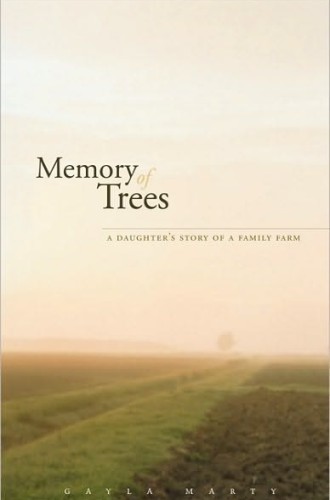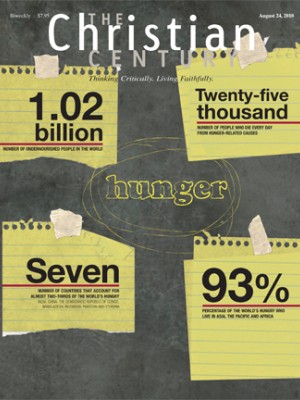A review of Memory of Trees
Along America's highways, wooden barns used to reign, and blue or white silos stood like sentries. Today those wooden barns and silos are decaying, their wooden ribcages emerging like skeletons after years of neglect, and slowly being replaced by low steel buildings. Under this seemingly innocuous change in architecture lies a great American drama. Gayla Marty tells this larger story inside the particular story of her own family.
In her memoir of a Minnesota girlhood, she turns the farms of the Marty and Anderson families into characters in their own right. To give these characters weight, she surrounds them with the history of four generations, introducing the chapters about them with passages from the King James Bible like those she memorized as a child. To give the characters breadth, she relates them to the little-told agrarian tale of how the Roman republic fell as the empire grew. To give them life, she intersperses chapters on the various kinds of trees she first came to love on the farm, in the Bible and in her travels: nine trees paired with nine chapters.
Read our latest issue or browse back issues.
Marty's gifts as a writer include a fabulous memory for detail, sensitivity to the lyric sound of language, excellent documentation and historical research skills, and honest descriptions of her own spirit that create a very credible, authentic voice. The structure and pacing of the book may discourage some readers, but those who persist will be rewarded.
Two churches—East Rock Creek and Rush City Baptist—play an important role both as anchors for family and community and as places where Marty's inner life was formed, as described in this passage:
On the last Sunday of the year, we walk into our old church, the furnace burning for the last time. Facing the painting of Jesus the shepherd in the field with his sheep, we sing.
I heard the bells on Christmas Day, their old familiar carols play. Mama and Daddy's voices harmonize, different notes but close together. And wild and sweet the words repeat, of peace on earth, good will to men.
Inside my head, I hold the words: wild and sweet the words repeat.
With this book Marty joins the ranks of many wonderful storytellers and memoirists of rural America. Readers may be reminded of Wendell Berry's poetry, Jane Smiley's A Thousand Acres, Kathleen Norris's Dakota and Mildred Armstrong Kalish's Little Heathens. Marty has Norris's and Berry's spiritual attunement along with some of the zestful documentary voice of Kalish.
But Marty also speaks with the voice of a prophet, wailing a lamentation even as she finds solace in trees and in the abiding divine Spirit they represent. When she left the farm for college and then again for an educational experience in Tunisia, she learned the history of the Roman republic, which was rooted in agrarian yeoman farming that gave way to forced large-scale agriculture that fed the Roman Empire. She skillfully connects memory, culture and characters in a Muslim land: "At every call to prayer, I thought I heard Uncle's and Daddy's clear voices." When she heard a street vendor cry out in Arabic, she thought it sounded like "C'm baaaaaaaaas!"—the calling of the cows in Minnesota.
The connections to home continue, in a sharper vein, as she describes how inexorable movements toward growth haunt both places: "I felt the movement of ghosts, wandering peoples and languages scavenging for places to plant, graze animals, satisfy hunger, build a shelter and hearth—sending legions ahead in clanking metal, enslaving each other to dig and build."
Back in Minnesota, we meet Uncle Gaylon, Marty's father's antagonist and business partner, whose family lived in an adjacent house. Uncle Gaylon made Marty feel special when she was a small girl through his attention and storytelling about the history of the farm. Later he became angry and unpredictable, like his father before him, and then came full circle, becoming an ally in a failing cause. Marty and her uncle wanted to keep the farm as a spiritual inheritance, while the rest of the family viewed it as an investment like any other and wanted to sell it.
So years of labor, love, harmony and community ended up on the auction block. The needs of one generation often do not align smoothly with those of the next. And a daughter who loves the land can seldom own the land. Since trees serve as Marty's primary metaphor, she voices her protest this way: "Daughters have been like apple trees, transient, adaptable, wandering the earth with their sweetness and tartness and promise, bending to the will of men in exchange for roots."
In the epilogue, it is clear that the daughter has given up the struggle for the land. Her uncle gave her one final gift before he died, reciting long passages memorized from the King James Bible that all led to this conclusion: "Then shall I fulfill my promise and bring you back to this place."







